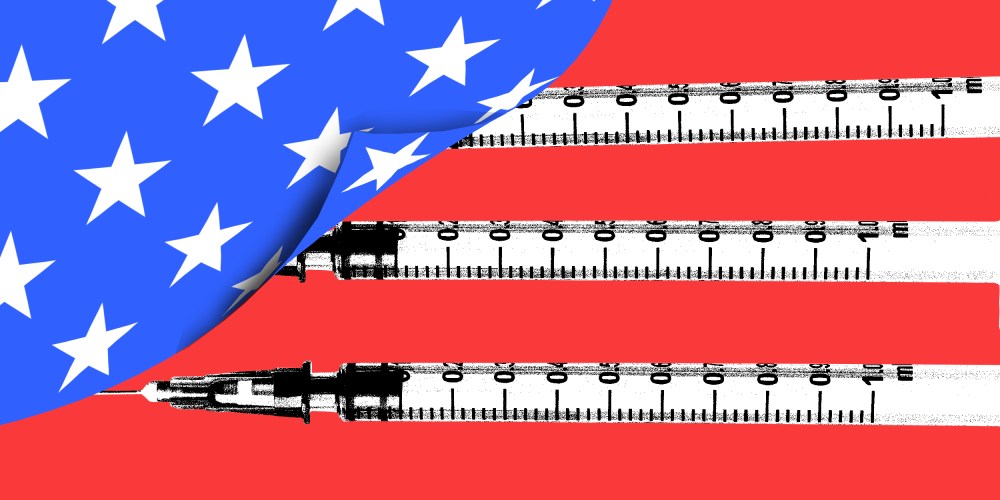The American vaccination campaign is finally humming, a seemingly night-and-day difference from the mad scramble to obtain the minuscule number of vaccine doses available just two months ago. But because nothing is simple, there’s a catch. You see, the speed of the U.S. vaccination program is built on a series of contracts the federal government signed with pharmaceutical companies at the start of their race for a vaccine.
These contracts have resulted in a massive stockpile of doses promised to Americans — while preventing that stockpile from being shared with the rest of the world. It’s an untenable situation that President Joe Biden needs to use all his leverage to change.

Vanity Fair contributor Katherine Eban reported this week that the Trump administration’s agreements with Pfizer, Moderna, AstraZeneca and Janssen when Operation Warp Speed was set up all include a clause that the U.S. government “may not use, or authorize the use of, any products or materials provided under this Project Agreement, unless such use occurs in the United States.” (Bloomberg News first reported that language in the Pfizer contract in March.)
American law guards drug companies from being held liable for any reactions resulting from new vaccines developed to treat public health emergencies, Eban explained. The Trump administration then basically promised that none of the doses provided to the U.S. as a result of their efforts could make their way outside that legal shield.
The result is the opposite of what Biden said last month when he announced the purchase of 100 million doses of Johnson & Johnson’s vaccine. The apparent unspoken caveat was his pledge to share any surplus with the world if countries receiving those doses agreed to extend the same liability shield to the drug companies. That was apparently the case in the “loan” the Biden administration made of 4 million doses of AstraZeneca’s vaccine to Mexico and Canada last month.
I understand, to some degree, why the U.S. opted to sign the contracts with the hoarding clause. But that was over a year ago, when it wasn’t clear that any vaccine would be developed, let alone that three varieties would be widely available to Americans. And while there have been some uncomfortable mishaps — like the 15 million doses of Johnson & Johnson’s vaccine that had to be discarded recently because of contamination — more than enough are already promised to the U.S. that we need not be stingy with the supply we have.

In all, the U.S. has managed to vaccinate around 20 percent of its population, including a quarter of all adults. That’s over 66 million people fully protected from Covid-19 as of Thursday, according to the Centers for Disease Control and Prevention. But most of the world is still waiting to vaccinate its people. “Many countries will be lucky if by the end of the year they are close to where the U.S. is now,” Public Citizen’s Zain Rizvi told The Washington Post. In the interim, hundreds of thousands more people are likely to die from Covid-19.
It’s a bad look the U.S. has sported before, as activists have noted, comparing the situation to the years Western drug companies spent refusing to lower the cost of HIV/AIDS drugs in Africa. Global health campaigners and countries like India and South Africa have been calling for the World Trade Organization to waive drugmakers’ intellectual property rights to the vaccines, allowing other companies to produce generic versions, as well.
The PR problem doesn’t end there. As the U.S. stockpile grows, Russia and China are producing vaccines of their own — and they have also been much more generous with their supplies globally, boosting their alliances with midsize and smaller countries. And from a pragmatic view, the longer the world waits to be fully inoculated, the greater the chance that even more coronavirus variants will mutate and develop.

The pressure building on the White House, both internally and globally, means the Biden administration needs to use its leverage to renegotiate the terms of its contracts with the vaccine producers.












